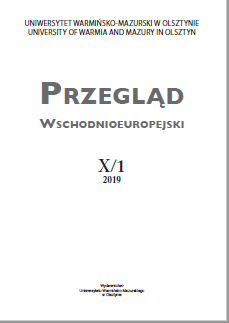ТИПОЛОГИЯ ФОРМ СИНТАКСИЧЕСКОЙ РЕАЛИЗАЦИИ ПРОПОЗИЦИОНАЛЬНЫХ
АРГУМЕНТОВ (НА ПРИМЕРЕ РУССКИХ ЭМОТИВНЫХ ГЛАГОЛОВ)
TYPOLOGY OF SYNTACTIC REALIZATION FORMS OF PROPOSITIONAL ARGUMENT (ON THE EXAMPLE OF RUSSIAN EMOTIONAL VERBS)
Author(s): Aleksander KiklewiczSubject(s): Theoretical Linguistics, Syntax, Semantics, Eastern Slavic Languages, Philology
Published by: Wydawnictwo Uniwersytetu Warmińsko-Mazurskiego w Olsztynie
Keywords: semantic syntax; valence; propositional (predicate-argument) structure; syntactic representation; sentential actant; complement clause; emotive verb;
Summary/Abstract: The subject of this article is the syntactic representation of propositional arguments in the sentences with Russian emotional verbs. The opposition of sentential and nominal actants is treated as a gradual one, i.e. represented by a set of syntactic realization forms of propositional arguments: clausal and non-clausal, finite and non-finite, lexical (material) and zero/empty (non-material). All these forms constitute a valence class of a lexical unit. A quantitative analysis of syntactic representations of Russian emotive verbs has shown that the valent characteristics of verbs and the separate subclasses vary in a large range. The most typical forms of filling the position of propositional argument in the class verba sentiendi are predicate and propositional names, and the least typical are clausal actants with the core component in the form of an adjective and infinitive.
Journal: Przegląd Wschodnioeuropejski
- Issue Year: X/2019
- Issue No: 1
- Page Range: 419-443
- Page Count: 25
- Language: Russian

